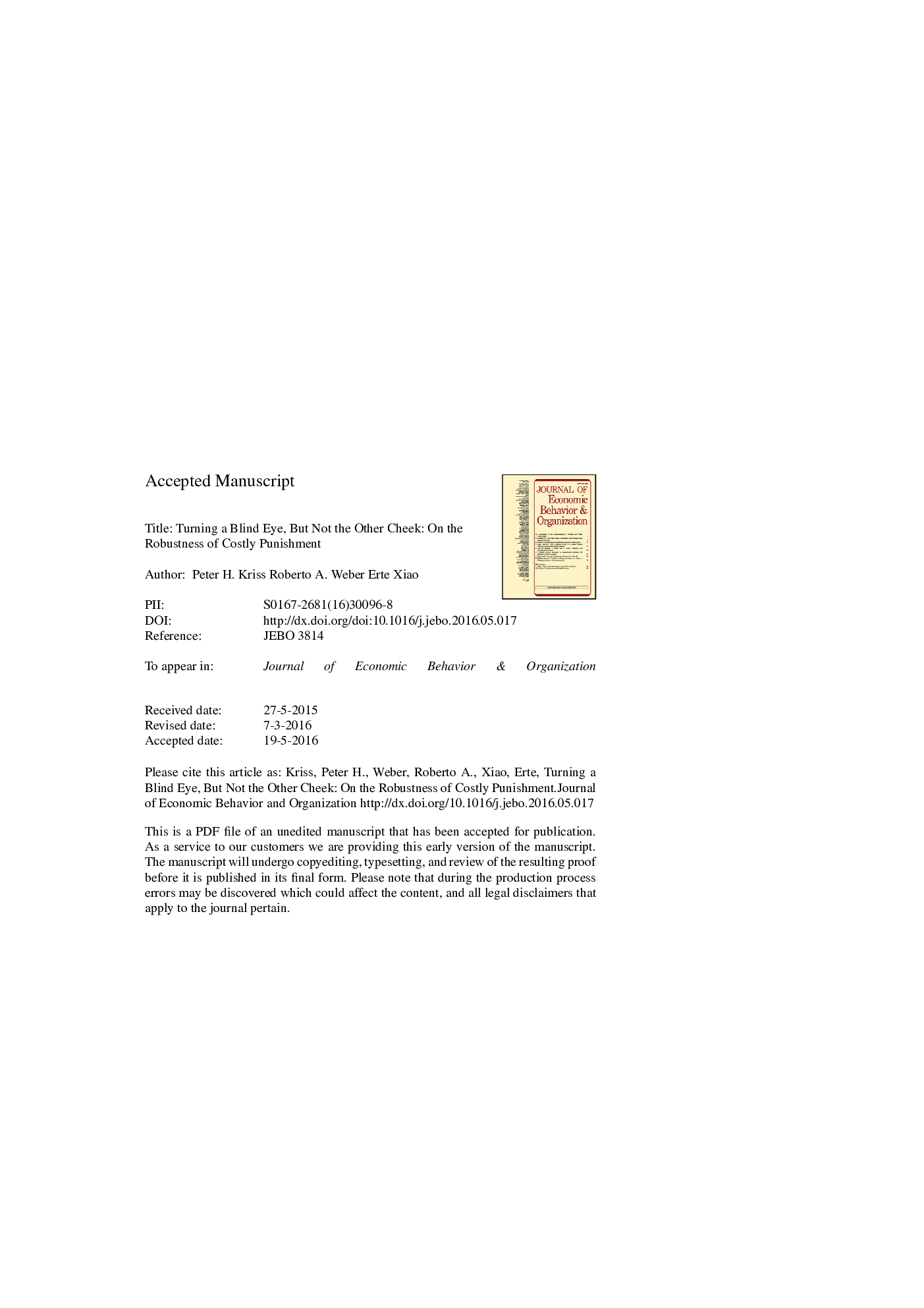| Article ID | Journal | Published Year | Pages | File Type |
|---|---|---|---|---|
| 7242792 | Journal of Economic Behavior & Organization | 2016 | 45 Pages |
Abstract
The willingness to punish norm violation is an important component of many legal and social institutions, and much prior research demonstrates an apparent willingness to incur costs to punish individuals who act unfairly. But, will people rely on “excuses” to get out of having to act on costly punishment intentions, as they do with other costly pro-social acts? And how may the answer to this question depend on whether the punisher is the victim of a norm violation or an independent third party? We conduct an experiment and find that third parties punish reluctantly: although they indicate a preference to punish, they choose to avoid the opportunity to punish when they can do so without explicitly revealing that this is their preference. In contrast, second parties, who have been directly wronged, are resolute punishers-they actively seek out the opportunity to punish, even misrepresenting random outcomes in order to ensure that punishment is implemented. Our findings highlight important differences in the motives underlying second- and third-party punishment.
Related Topics
Social Sciences and Humanities
Economics, Econometrics and Finance
Economics and Econometrics
Authors
Peter H. Kriss, Roberto A. Weber, Erte Xiao,
